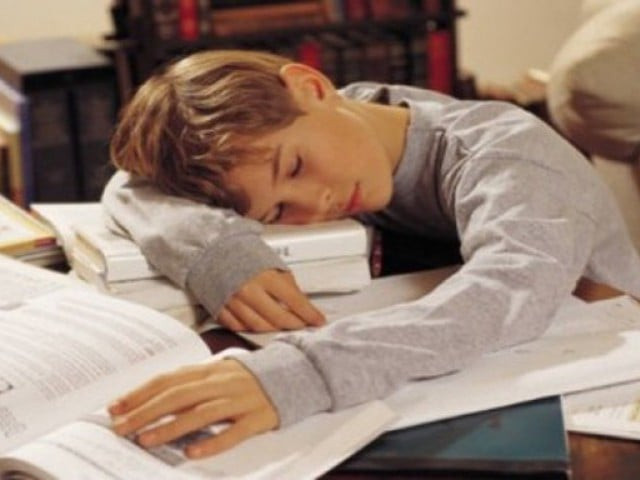6 things every parent should know about kids and sleep
Here’s a list of things parents need to understand about their kids and teens and sleep

PHOTO: FILE
Look for red flags
Some red flags can actually help you identify if your child isn’t getting enough sleep each night. Psychologist and sleep expert Jodi Mindell, associate director of the Sleep Center at Children’s Hospital of Philadelphia suggests asking yourself these questions — is it a struggle waking your child up each morning? Does your child always sleep for at least two hours more on weekends or non-school days than on weekdays? Does your child regularly fall asleep in the car, at school, or other times when he or she shouldn’t be sleeping? Is your child different — happier, more energetic — on days he or she gets more sleep? “If any of these are true, then you need to think about getting more sleep for your child,” suggests Mindell. After all, there’s enough research to back up that not enough shuteye can seriously tamper with your child’s emotional responses.
Rethink your child’s after-school snacks
Did you know that what your kid snacks on, can affect how well he or she falls asleep at night? Mindell calls it a “sleep stealer”: hidden caffeine in food and drinks or caffeinated beverages that are consumed in the afternoon, but still affect sleep at night. “Many parents don’t realise what things have caffeine in it, and how much caffeine they have,” Mindell says. While she doesn’t advise kids having caffeine in the first place, she notes that they definitely “shouldn’t have it past early afternoon, because that’s when it can really impact sleep.” Research has shown a link between consumption of caffeine by adolescents and reports of restlessness, fidgeting, and problems sleeping. PS: Hidden sources of caffeine include sodas and chocolate!
Too many extra-curriculars can hurt your
child’s sleep
Cricket practice followed by guitar lessons after school, with an Urdu literature tutoring session in between — does this resemble your kid’s schedule? If it does, you might want to tweak your child’s routine a bit. “There are so many sports and extra-curricular activities in the evening that can interfere with sleep. If they’re not getting home until 9, then yes, that will interfere with their sleep,” Mindell confirms. “Parents need to pick and choose what their child does, and they also need to speak up and really encourage schools to move extra-curricular activities to earlier [in the afternoon].”
A heavy course load could be to blame
If your kids have been complaining about copious amounts of homework or a bunch of projects that need completion, listen to them more attentively, instead of simply boosting them to “pull through.” A 2014 study from Stanford researchers in the Journal of Experimental Education examined the homework loads of more than 4,000 school-going children. They found that many of the students reported that their homework was actually leading to health problems and trouble sleeping at night. If your child seems overburdened with school work, book an appointment with the school’s administration to discuss this issue before it goes out of hand.
Monitor your child’s well-being
Did you realise that your child’s lack of sleep may be the reason for that cold that just won’t go away? Not getting enough rest has a negative effect on our body’s production of cytokines (proteins that help to battle illness). Research has shown a link in teens between sleeping less at night and frequency of falling ill. And a recent study in the journal Sleep identified an association between getting fewer than six hours of sleep a night and being more likely to catch a cold. While that study was conducted in adults, study researcher Aric Prather shared that the results also apply to children.
Is your kid sleeping late?
Going to bed too late could, in fact, affect your teen’s grades, according to a recent study in the Journal of Sleep Research. Researchers from Uni Research, the Norwegian Institute of Public Health, Örebro University, and University of California, Berkeley, examined data from thousands of teens to find that those who hit the hay between 10 and 11pm had the best grades, with less sleep correlating with poorer grades among all the teens. To make sure your kiddos are excelling at school, instill in them the habit to hit the sheets before midnight each day.
Published in The Express Tribune, April 26th, 2016.
Like Life & Style on Facebook, follow @ETLifeandStyle on Twitter for the latest in fashion, gossip and entertainment.



















COMMENTS
Comments are moderated and generally will be posted if they are on-topic and not abusive.
For more information, please see our Comments FAQ